The real impact of signing up to a January health craze
- Published
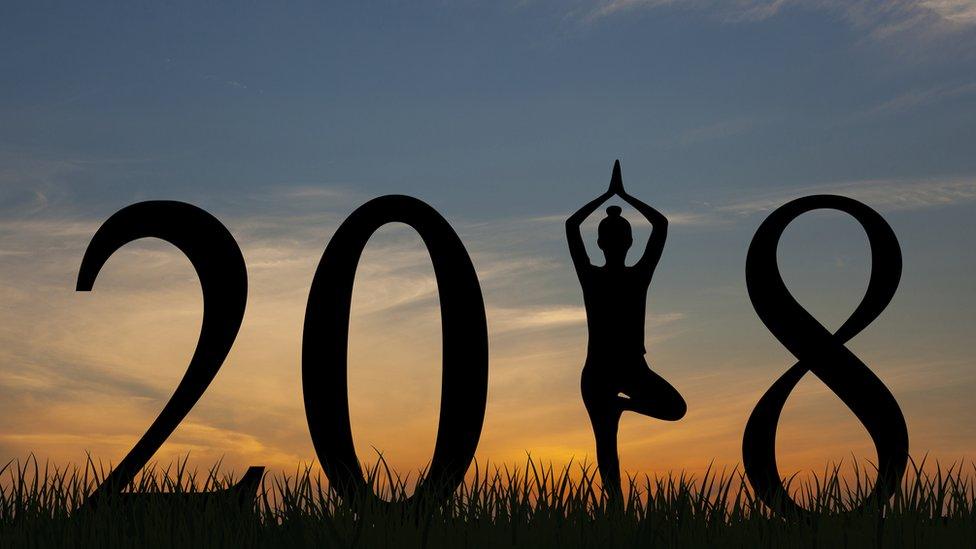
Three days into January and social media is full of people showing off about what they are giving up this month.
According to the Veganuary campaign, more than 120,000 have signed up to be meat and dairy-free this month.
And around three million people in the UK are reportedly planning to cut out alcohol for Dry January.
While exercising more is one of the most common New Year resolutions.
But is it worth trying to be healthier just for one month? Newsbeat takes a look.
Veganuary
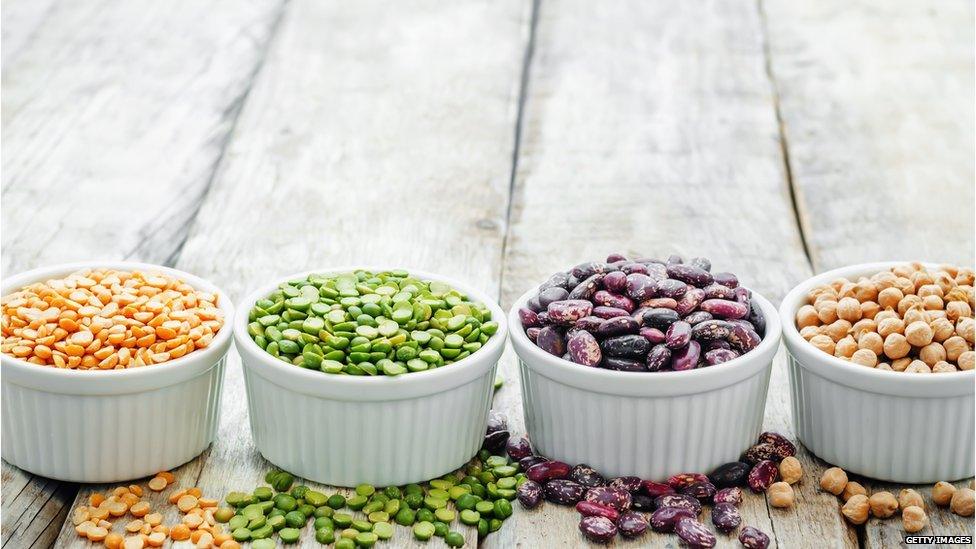
Vegan diets are not only considered healthy but are also good for the planet - even if it is only for a month, according to some experts.
Food consumption is responsible for around 17% of greenhouse gas (GHG) emissions in the UK each year, says Dr Marco Springmann, a senior researcher on environmental sustainability at Oxford University.
If everyone in the UK ate vegan for a month, food-related GHG emissions would drop by 6%, he adds.
That's the equivalent of six million round trips between London and New York.
Potential health benefits are also a huge draw for Veganuary, and nutritionist Lily Soutter believes people taking part could see an impact.
She says you are likely to see positive effects on blood sugar levels, cholesterol, blood pressure and weight loss within a few weeks.
Nutritionist Dr Laura Wyness says while going vegan does have health benefits, people should also be cautious.
"It may be better to make the change to a vegan diet gradually over a few months to allow you to find new recipes you can make and enjoy, and to be aware of what foods you can have to ensure you get all the nutrients you need," she warns.
Dry January
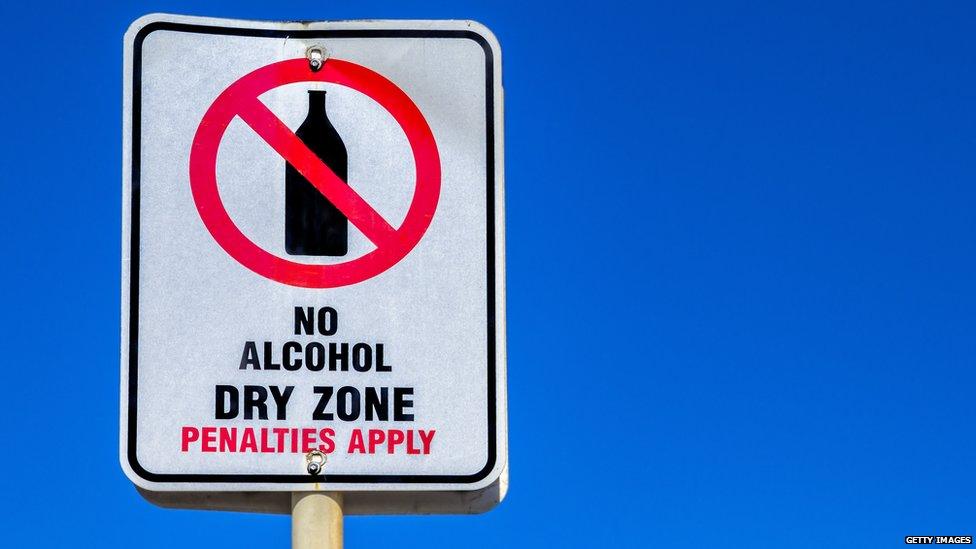
While it's been suggested that cutting out booze in January can lead to a binge in February, research suggests otherwise.
The University of Sussex found that people who took part in Dry January were drinking less, and less often, in the six months following the challenge.
"The short term health benefits of cutting down on alcohol include weight loss and brighter skin," says Drinkaware's Ben Butler.
"It has also been shown to improve the quality of sleep. And for those who are drinking to relieve stress, reducing alcohol can also have a positive effect on mental health."
It's cheaper too. According to Cancer Research UK's alcohol calculator, if you have three pints per week, you can save £40 by taking a month off.
The gym
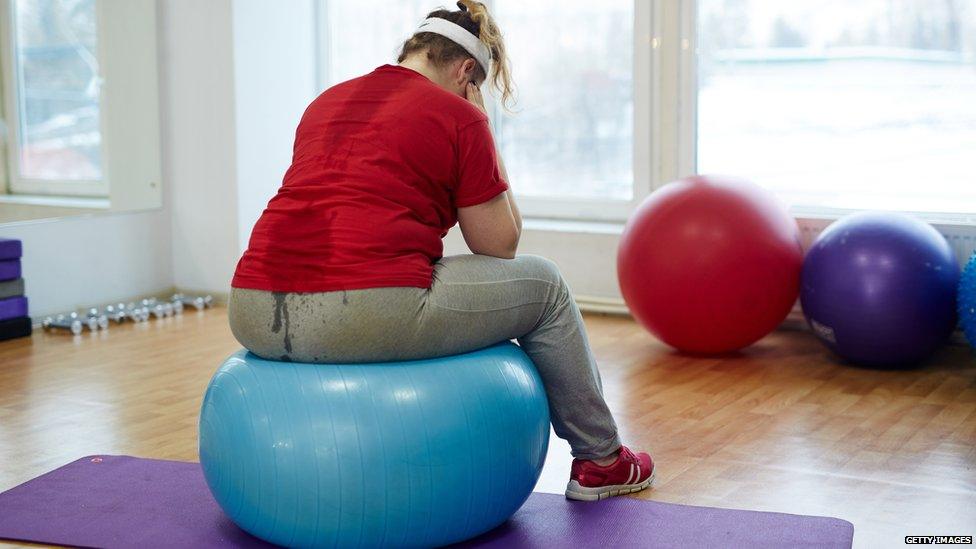
Exercising more is something a lot of people pledge to do in the new year, but experts stress to not be too hard on yourself.
"Don't beat yourself up if unexpected events means you get a clash and do not go, and remind yourself that your goal was to go more than before," Professor Andy Lane from the University of Wolverhampton says.
Personal trainer Chris Hall has some practical tips.
"If you're new to exercise or have taken a break, try training twice per week, for an hour at a time and then build up from there.
"Rest is a crucial tool in the journey for health and it's vastly underestimated.
"When you're working out, you're actually breaking down muscle tissues, not growing them.
"It's the rest time in between workouts which allow the muscles to repair and grow."
How to stick to it
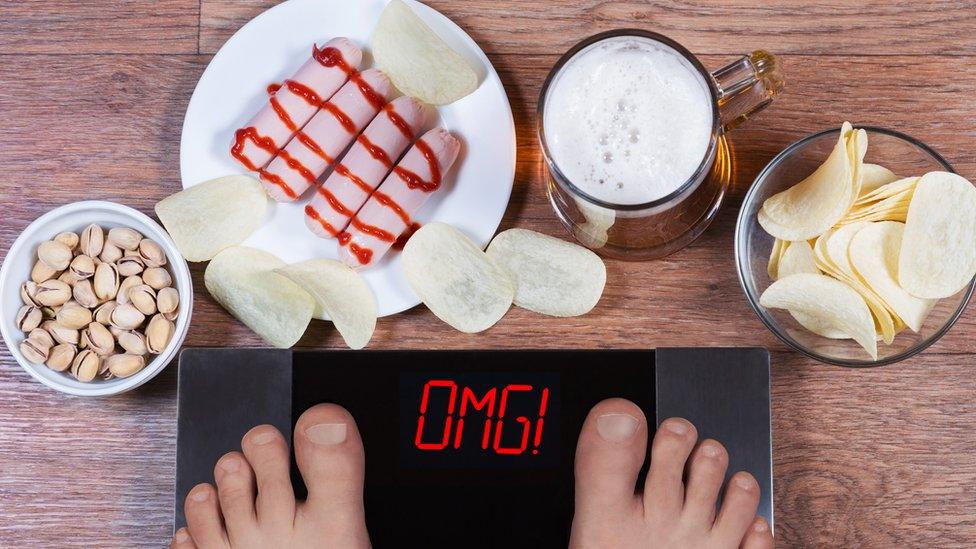
There's reason to feel confident if you're making changes in January, says to Dr Sander van der Linden, director of the social decision-making lab at Cambridge University.
"One of the most important things is to share your resolutions with other people - you're more likely to stick to it if you commit to something publicly.
"This is why these campaigns tend to be popular - because a month is something most people feel they can do, and it helps that other people tend to be doing it."
He says the trick is not to focus too much on the long-term.
"You may feel that after two days you've done good work, and then you're thinking 'damn another 28 days without alcohol'.
"So maybe focus on the fact that you've just managed to go without alcohol for the last two days, and see that as an accomplishment."
Find us on Instagram at BBCNewsbeat, external and follow us on Snapchat, search for bbc_newsbeat, external